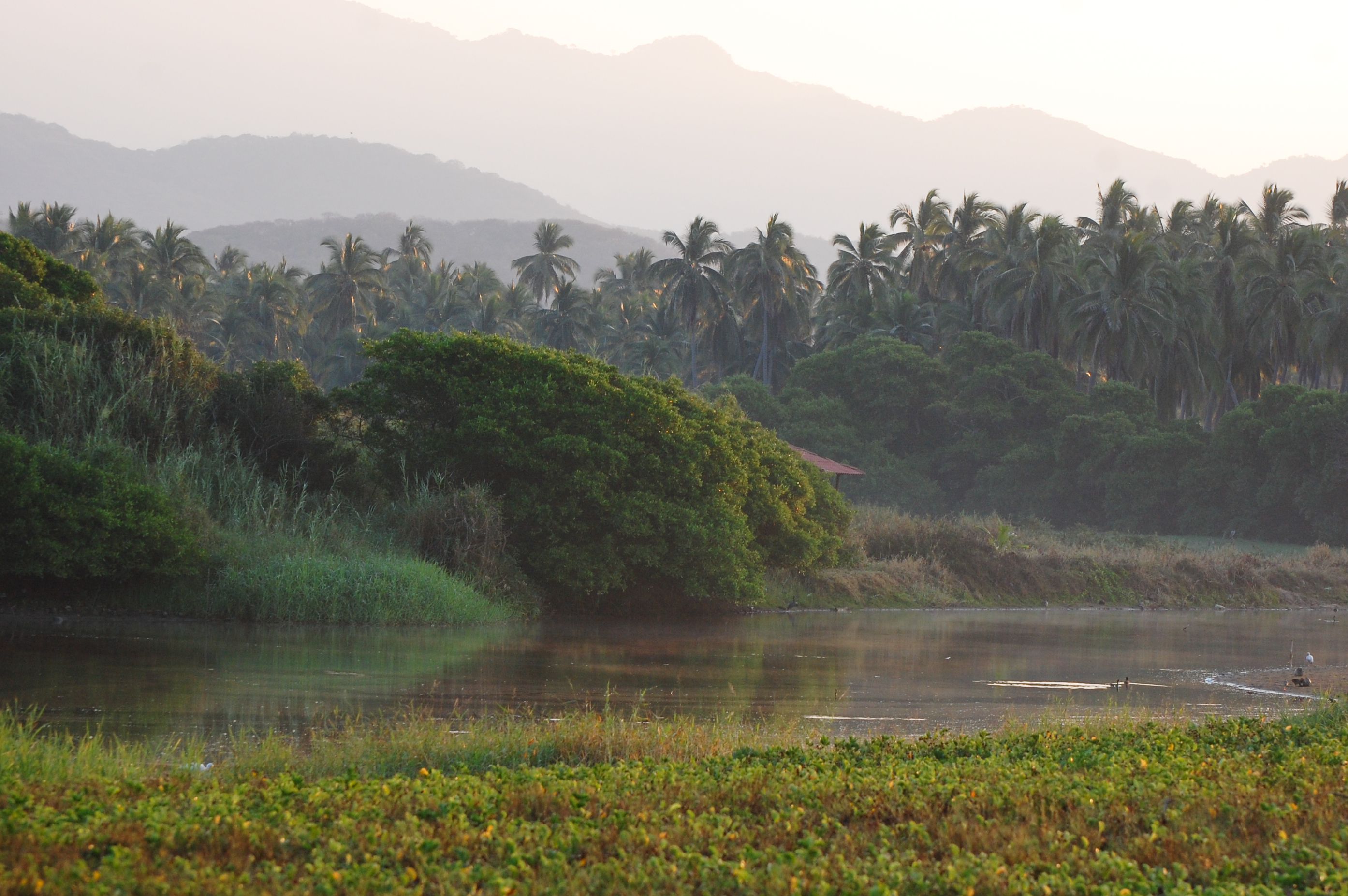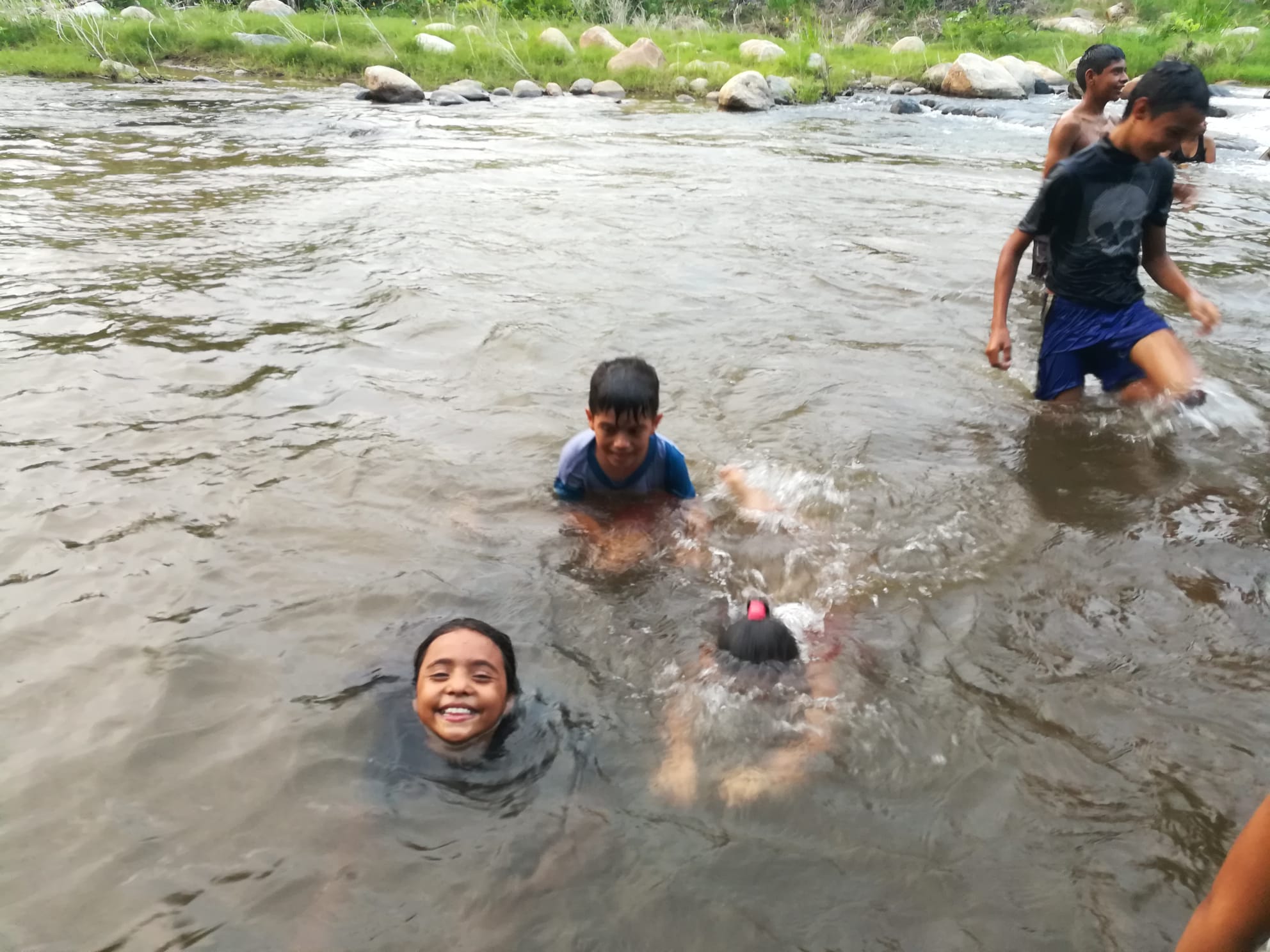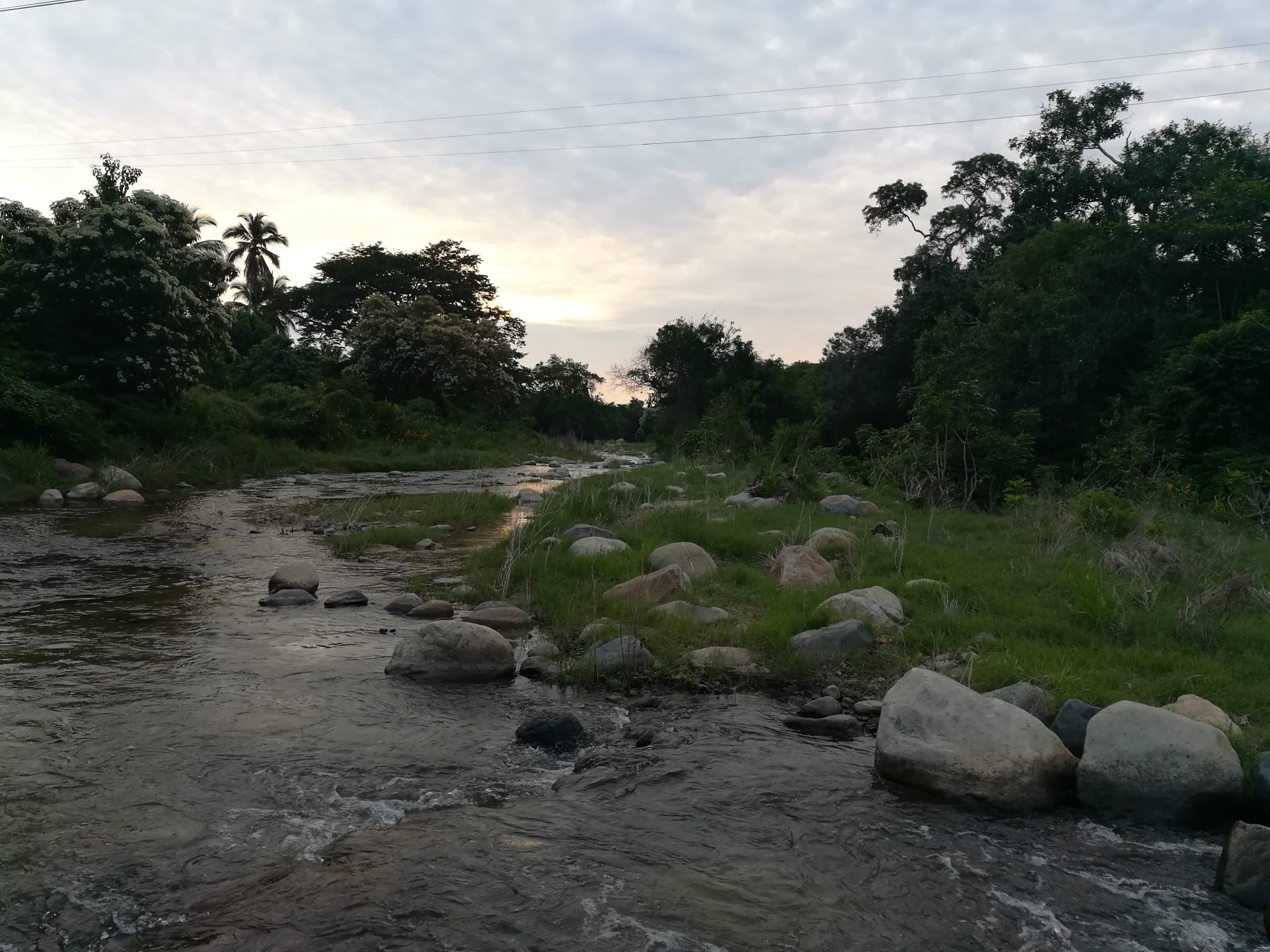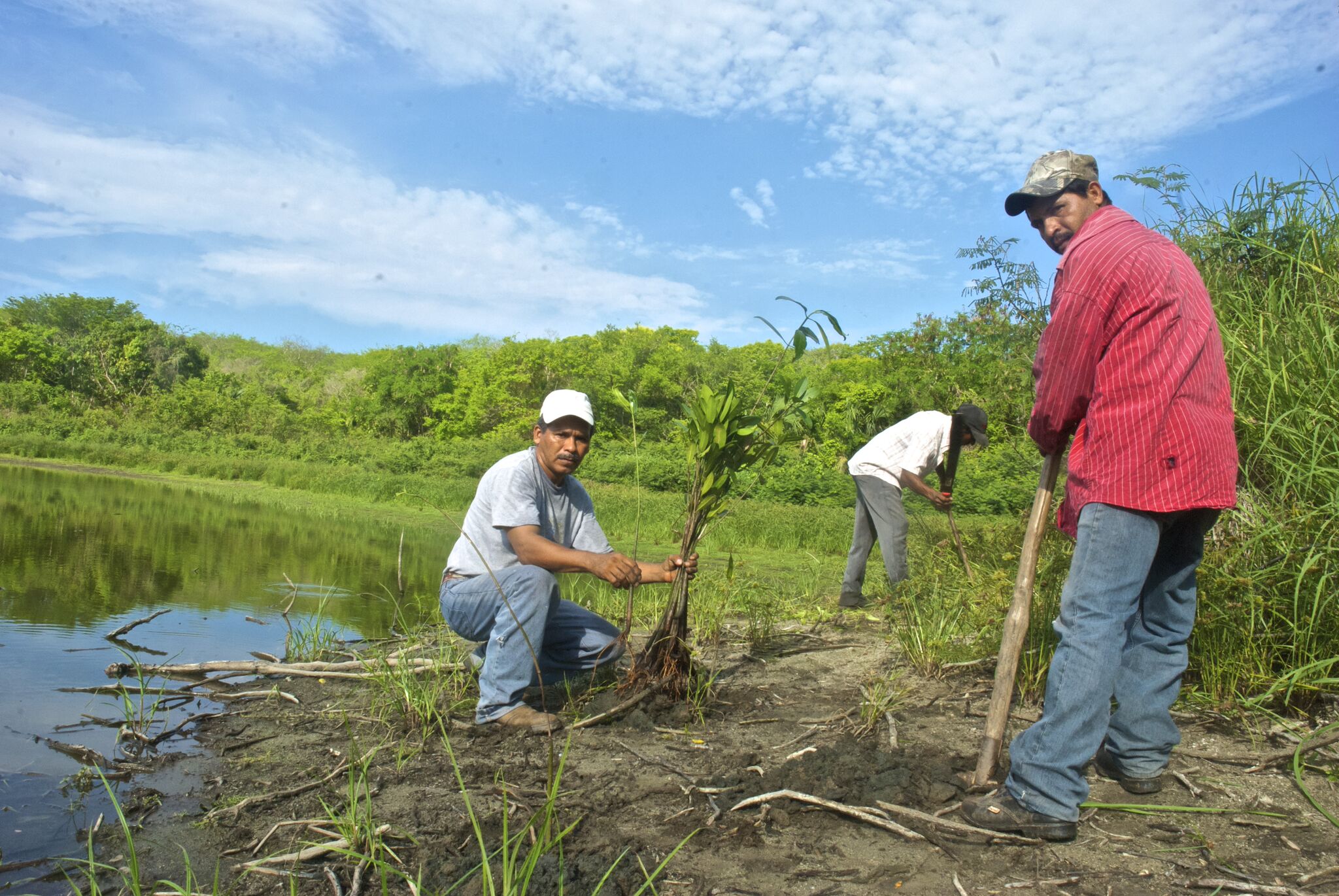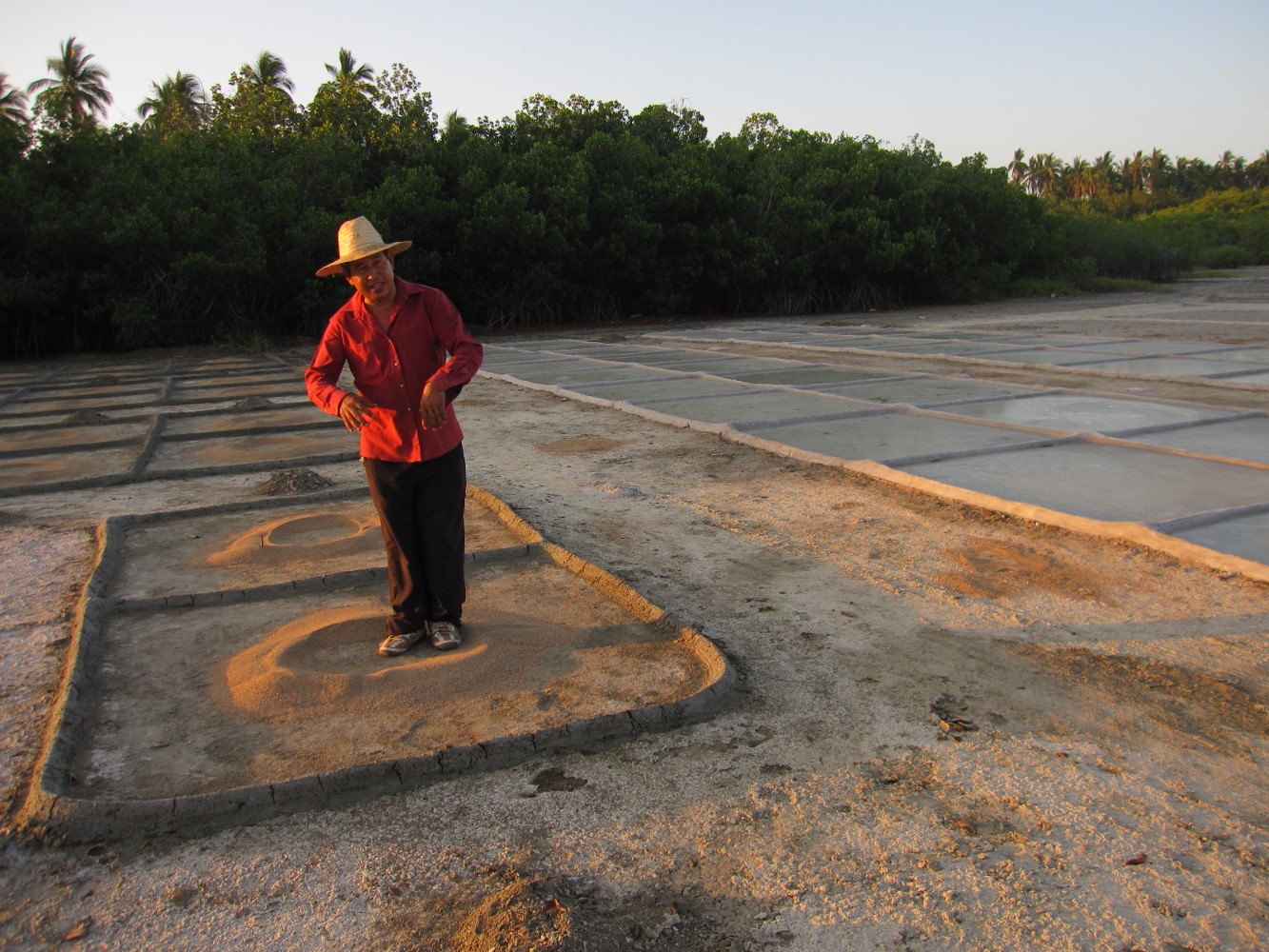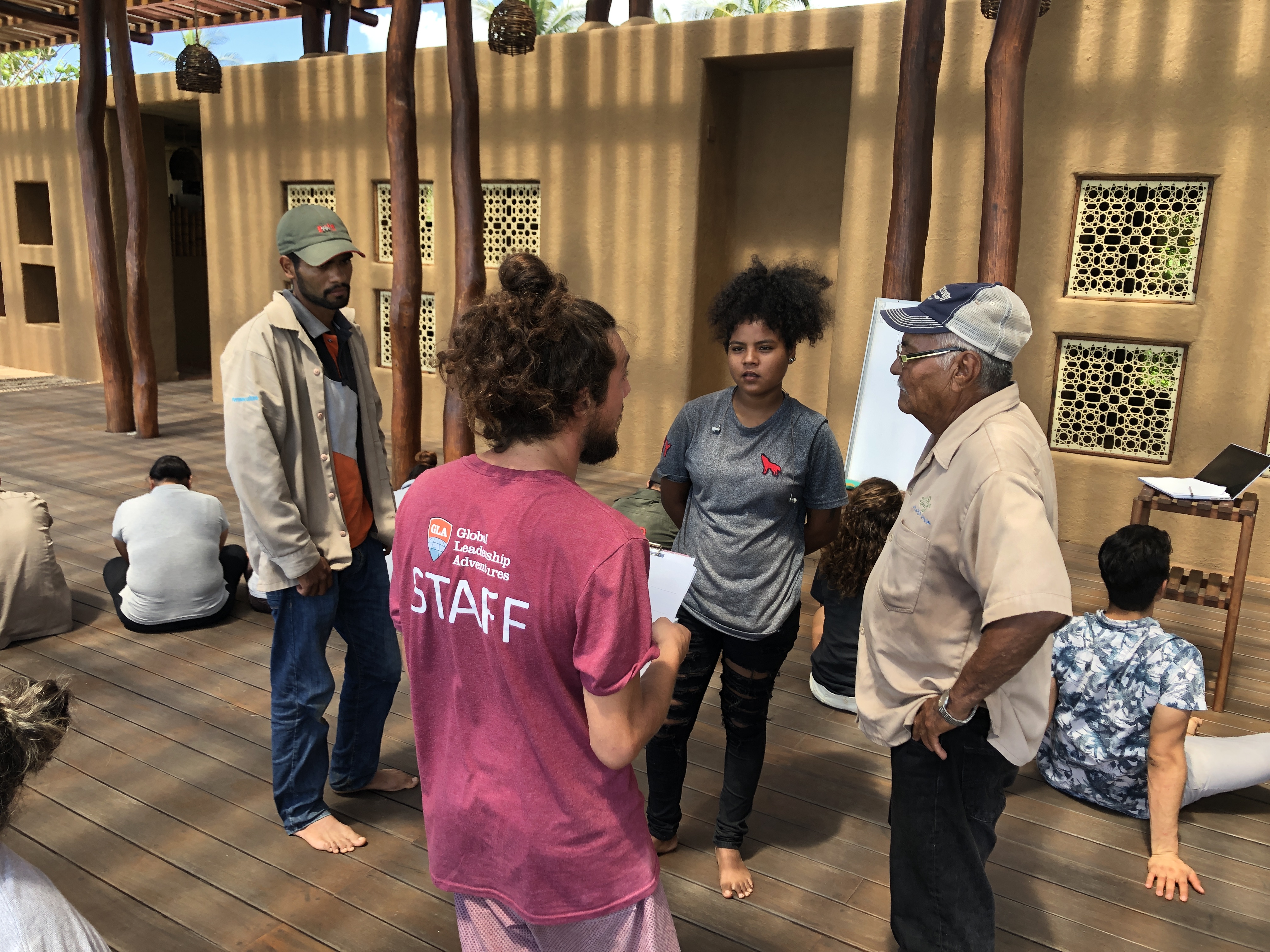Contributing to more abundant water and energy sources is a Core Value at Playa Viva.
We live next to the sea, and at times of the year the river here is so full it carves new paths in the landscape as water forces its way across fields and forests.
During our two rainy months, you’ll find families bathing and washing clothes in the river that meanders through our community. And then, the rivers dry up, the leaves fall from the trees and the tropical landscape turns to desert. And we wait. We wait for the rains to start.
Decades ago people knew the water cycles.
Decades ago people knew the water cycles. They knew to plant corn on May 15 because the first rains came on May 16. They grew a large diversity of crops and fed their families from their fields because the rain was all but guaranteed. They fished in year round ponds. They did not question if there was enough water to wash their clothes, their dishes and their bodies all in the same day.
the rivers dry up… the tropical landscape turns to desert. And we wait. We wait for the rains to start.
Today, we talk about water in a different way. We are hyper aware that this part of the Costa Grande region receives about half of the rain water it did ten years ago. We think critically and collaboratively about ways to store water through the long dry months. We are designing landscapes to help slow, spread and sink rainwater in order to hold it in the soil and move it through plant systems. When we decide to invest in water catchment systems in town, community members come together to identify the families and households in the most need of access to clean water.
Water & Energy Regeneration Training Station
During our recent staff environmental training session we took a deep-dive into one of Playa Viva’s Core Values – contributing to more abundant water and energy sources. In three rotating groups we spent time discussing what we can do as individuals, as a small community, and as members of a regenerative hotel to conserve water and responsibly use energy. There are practices and systems in place at Playa Viva that are intentionally simple and easy to replicate in communities and households as small as Juluchuca and Rancho Nuevo. For example, grey water is captured from showers and handwashing stations and fed back into the ecosystem around each room at the hotel.
There are practices and systems in place at Playa Viva that are intentionally simple and easy to replicate
The environmental training and interactive workshop gave staff members from all departments the opportunity to ask questions about the systems with which they work so closely. For us, the more people that understand the grease traps, solar panels, biodigesters and grey water oases, the more attention each of these systems will receive. As we create opportunities for our staff to participate in regenerative practices, we can help feed their desire to be ambassadors of sustainability in their own community.
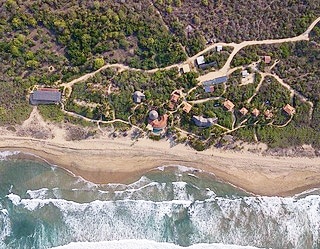
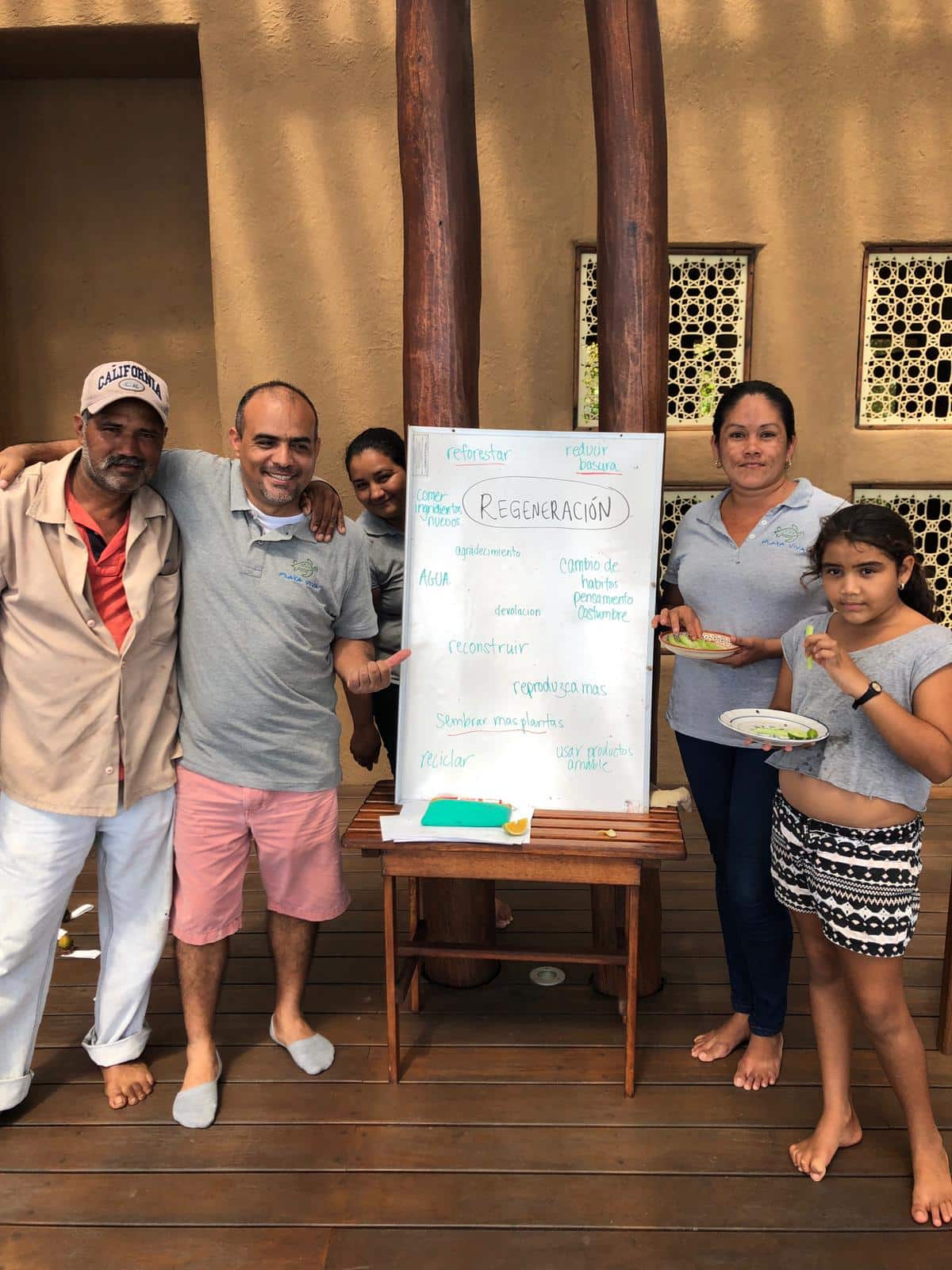
These workshops are a starting point for Playa Viva. They are a space where we learn what it is we do not know and how to find, share and use the desired knowledge. Next steps for us could look like additional and more frequent regeneration stations and staff workshops; we can leave the roundtable discussion environment and observe and discuss the water and solar systems in the field, where they capture energy and create closed-loop systems.
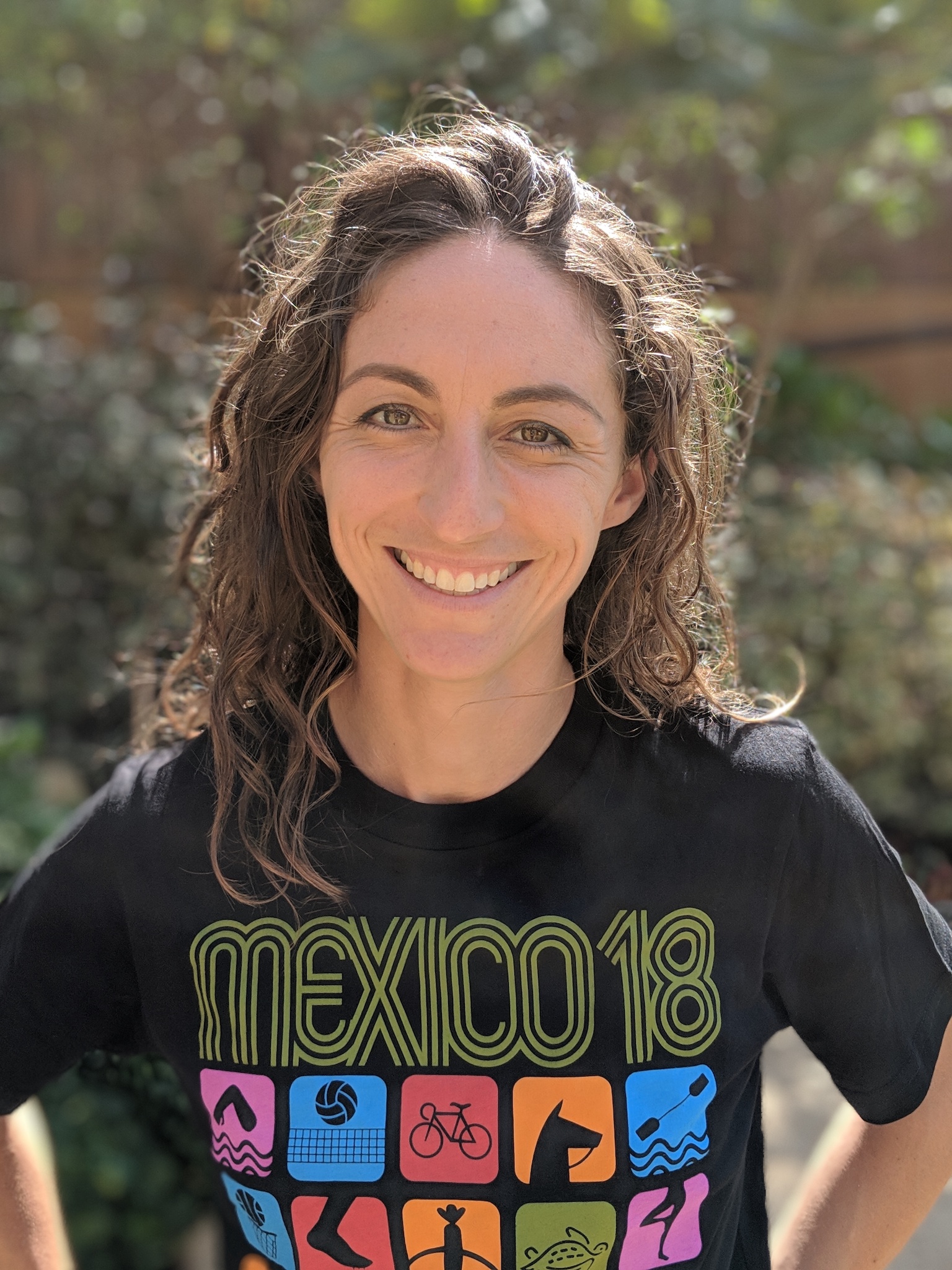 Amanda Harris is the Permaculture Manager at Playa Viva. Originally from Maryland, she made her way to Juluchuca by way of Nicaragua, Costa Rica, Southeast Asia, and most recently, a beautiful, diversely planted “holler” in West Virginia.
Amanda Harris is the Permaculture Manager at Playa Viva. Originally from Maryland, she made her way to Juluchuca by way of Nicaragua, Costa Rica, Southeast Asia, and most recently, a beautiful, diversely planted “holler” in West Virginia. 

